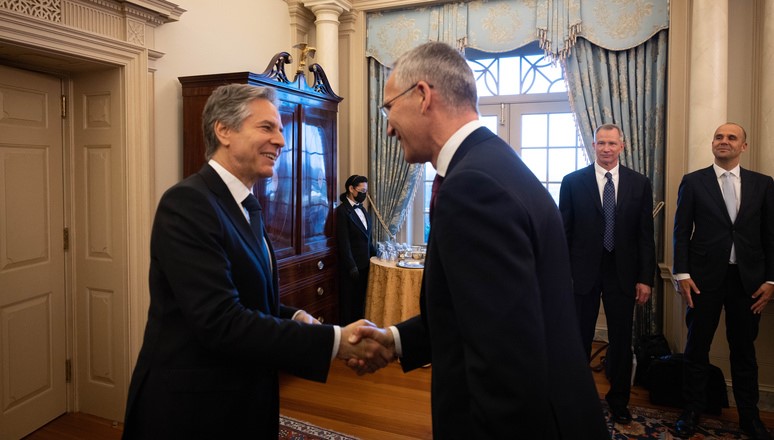Thanks to Vladimir Putin, NATO has experienced a revival, as nations realize that the powerful deterrent it provides is vitally necessary.
For several decades following the collapse of the Soviet Union, many questioned the relevance of NATO. Far too many members, especially Germany, failed to live up to their obligation to maintain an adequate defense posture necessary for the alliance’s credibility.
That issue was eventually raised by the Trump Administration, when it protested that Berlin essentially relied on the American taxpayer to fund NATO’s deterrent capability. But it was the various acts of aggression by Vladimir Putin that jolted errant members back to reality.
Ambassador Julianne Smith, U.S. permanent representative to NATO, told the Defense Writers’ Group that Moscow’s challenges had forced members to awaken to the obvious danger. “Even before February 24, she noted, that “there was a deep appreciation across the alliance that the language on Russia from 2010 was sorely outdated and needed a significant upgrade and needed to reflect the current environment,” Smith said. “There was also an appreciation that China, for the first time, needed to be part of the strategic concept.”
China’s threatening stance has been illustrated by Beijing’s naval maneuvers alongside Russia in the Mediterranean. That growing problem has brought distant nations, including Australia, New Zealand, Japan and South Korea into closer consultations with NATO’s members.
China is increasingly agitated about NATO’s awareness of Beijing’s growing military might, and its aggressive actions. Foreign Ministry Spokesperson Wang Wenbin commented in April “Since the Cold War was long over, NATO, as a product of the Cold War and the world’s largest military alliance, should have made necessary adjustments in accordance with the changing times. However, NATO has long clung to the old security concept, engaged in bloc confrontation and become a tool for certain countries to seek hegemony…NATO, a military organization in the North Atlantic, has in recent years come to the Asia-Pacific region … The impact of NATO’s eastward expansion on the long-term peace and stability of Europe is worth reflecting upon.”
As the two totalitarian nations move closer together, formerly neutral nations are seeking admission.
Another response to Putin’s invasion of Ukraine is applications by Sweden and Finland to join the alliance. The two nations, long NATO partners, have military capabilities that would fit seamlessly into the alliance. Smith stresses that “It’s been interesting for me to watch countries in the Asia-Pacific talk about hybrid threats on their side of the Pacific: how they are grappling with disinformation, cyberattacks, the aggressive tactics that they’re seeing, acts of intimidation from China,” Smith said. “Then, you pair that with an Estonian or a Lithuanian, and they talk about some of the same challenges that they’re seeing from Russia.”
In April, the alliance agreed to step up practical support to other partners at threat of Russian aggression, including Georgia and Bosnia and Herzegovina, to help strengthen their resilience. Allied Foreign Ministers were joined by their counterparts from Ukraine, Georgia, Finland, Sweden, and the European Union, and by NATO’s Asia-Pacific partners, Australia, Japan, New Zealand and the Republic of Korea. NATO will increase its cooperation with Asia-Pacific partners in areas like cyber, new technologies, disinformation, maritime security, climate change, and resilience, “because global challenges demand global solutions,” according to General Secretary Jens Stoltenberg. While in Washington on June 1, the NATO chief stated “more and more Allies are meeting our guideline of spending 2% of GDP on defence. President Putin wanted less NATO. He is getting more NATO. More troops and more NATO members.”
At the end of this month, the Alliance will meet in Madrid to outline plans for the future, and develop a new “strategic concept,” a concept renewed every ten years.
Photo: Secretary of State Blinken greets NATO Secretary-General Jens Stoltenberg (DoD)
